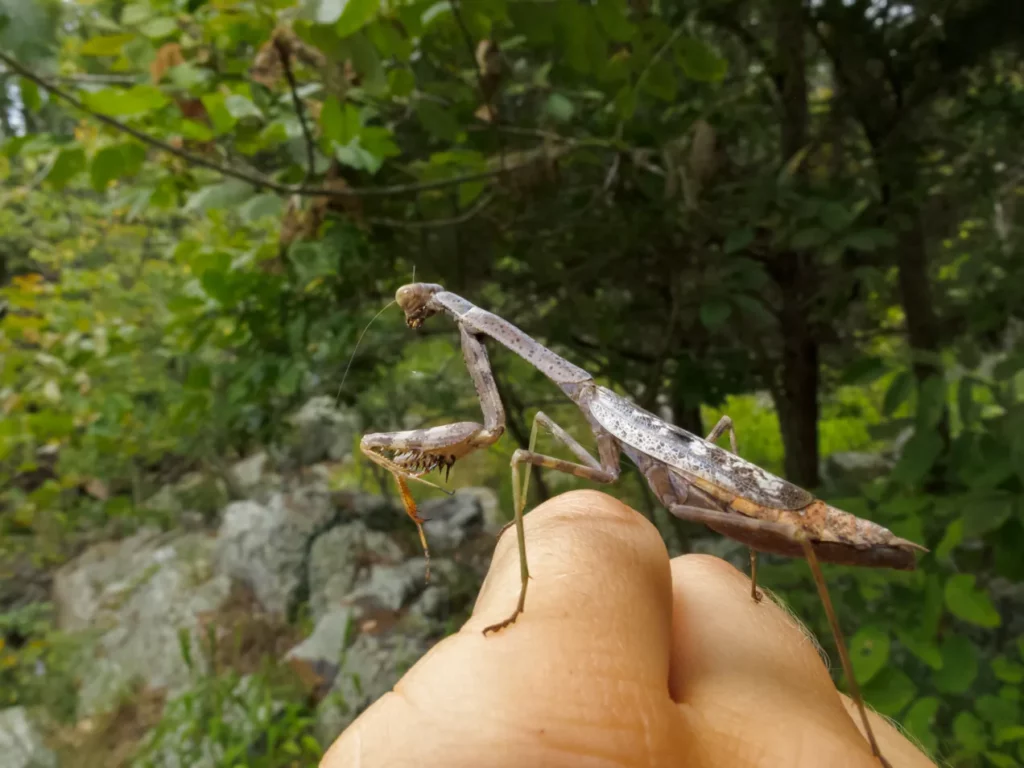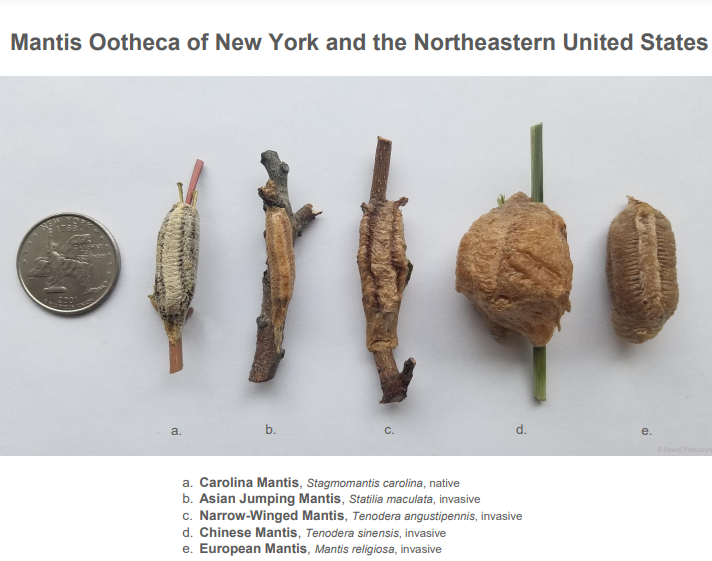Get to Know Your Local Mantis
Thanks to the University of Maryland/Maryland Grows this informative article about getting to know your local mantis.

Q: I’ve heard that not all of our praying mantis types are native. They’re all good for garden pest control though, right, or are some bad instead?
A: Maryland is currently home to five species of praying mantis, but only one is native, which is the Carolina Mantis. The others are the European, Chinese, Narrow-winged, and Asian Jumping Mantids, with the latter being the most recent introduction. While non-native, the other mantids have more-or-less been integrated into our ecosystem for some time now, so they don’t necessarily need management or removal. Evidence of this includes the fact that insect-eating birds and other predators will readily consume them, and their eggs can also be parasitized by the tiny wasps that presumably evolved to have a relationship with our native mantis. In the grand scheme of things, other invasive species deserve more attention. Plus, at least they also eat various other non-native insect pests.
If you prefer to support native mantids found in your yard, make sure you’ve identified them correctly. Maryland Biodiversity Project has image galleries for each mantis species and provides a few ID tips for telling the difference between them, at least for adults and egg cases (called ootheca). Put “mantids” in the search box to see the species list.

Mantids are generalist predators
Mantids are generalist predators, so can consume pest insects and beneficials like pollinators alike. They’re opportunists, nabbing anything they can subdue (including each other), so are neither universally good nor bad. Gardeners generally consider them helpers since they do consume pests, though we don’t know to what extent the non-native species may be depriving the native species of a food source due to competition. (Given how many other non-native insects exist in our area, I imagine this impact isn’t that significant, especially when compared to the greater problem of habitat loss and degradation.)
By Miri Talabac, Horticulturist, University of Maryland Extension Home & Garden Information Center. Miri writes the Garden Q&A for The Baltimore Sun and Washington Gardener Magazine. Read more by Miri.
Have a plant or insect question? The University of Maryland Extension has answers! Send your questions and photos to Ask Extension. Our horticulturists are available to answer your questions online, year-round.
If you are looking to buy or sell your home (with or without a garden), contact Gigi today. Oh by the way, I’m never too busy for any of your referrals!








Recent Comments